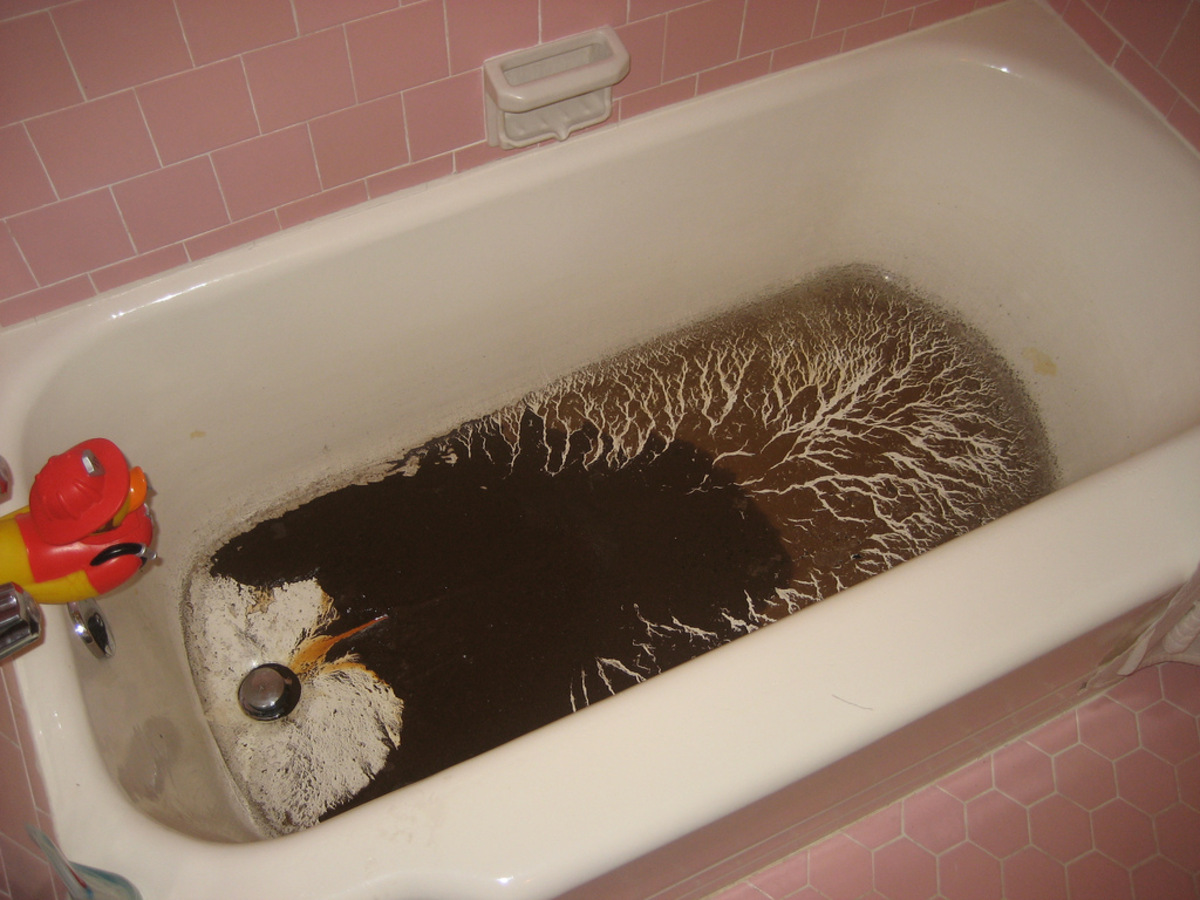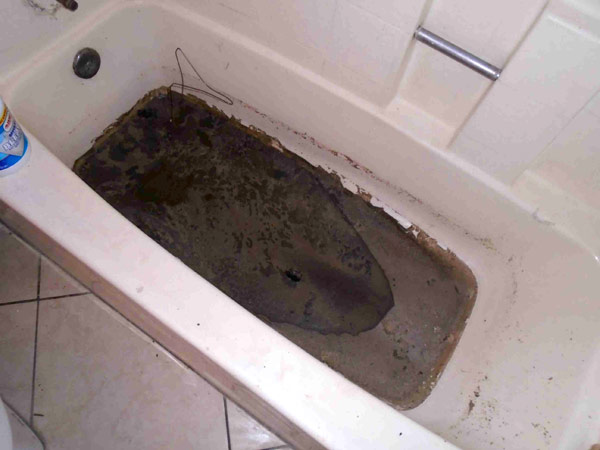Identifying the Causes of Effluent in the Bathtub
Identifying the Causes of Effluent in the Bathtub
Blog Article
We have noticed the article relating to Water Coming up Bathtub Drain listed below on the web and believe it made perfect sense to talk about it with you here.

Sewer backup in the bathtub can be a traumatic and unhygienic problem for any homeowner. Not just is it inconvenient, however it likewise positions significant health and wellness dangers and shows underlying issues with the plumbing system. Recognizing why sewage is showing up through the bath tub is critical for taking proper activity to deal with the issue effectively.
Intro to the Concern
Typical Factors for Sewer Backup
Clogs in the Drain Line
One of the most typical sources of sewer back-up is a clog in the drain line. This can happen as a result of the accumulation of debris, grease, or international things in the pipelines, preventing proper flow and triggering sewage to back up right into your bath tub.
Tree Origin Breach
Tree roots looking for wetness and nutrients can infiltrate drain lines with little fractures or joints. With time, these roots can grow and expand, creating significant damages to the pipelines and bring about sewer backup concerns.
Understanding the Problem
When sewer starts backing up right into the tub, it's a clear indicator of a problem with the water drainage system. The wastewater that ought to be flowing away from your home is instead locating its back right into your living space, which can result in significant damages and health hazards.
Potential Reasons
Numerous factors can contribute to sewage backup in the bathtub. From clogs in the sewer line to issues with the plumbing infrastructure, recognizing the origin is necessary for discovering an option.
Aging Facilities
Older homes may have obsoleted plumbing systems that are a lot more vulnerable to corrosion, splits, and damage. As pipelines age, they become a lot more prone to leakages and blockages, enhancing the chance of sewage back-up events.
Heavy Rainfall or Flooding
Throughout periods of heavy rainfall or flooding, the sewer system may end up being overloaded with excess water, triggering back-ups and overflows. This can cause sewage backing up right into tubs and various other components inside the home.
Signs of Sewage Backup
Foul Odors
Undesirable smells emanating from drains or components, specifically in the washroom, might indicate sewage backup problems. These smells are often strong and persistent, signifying a problem that needs immediate interest.
Slow Draining Fixtures
Tubs, sinks, and toilets that drain slowly or otherwise at all could be experiencing sewage backup. If multiple components are influenced simultaneously, it's most likely that the problem originates from an usual factor, such as the main sewage system line.
Gurgling Sounds
Unusual gurgling or gurgling sounds coming from drains pipes when water is running elsewhere in the house are a measure of air caught in the plumbing system. This air buildup can arise from sewage back-up and ought to be examined without delay.
Health And Wellness Risks Related To Sewer Backup
Contamination of Water System
Sewage backup can infect the supply of water in your home, posturing a serious health risk to you and your household. Direct exposure to contaminated water can result in stomach concerns, skin infections, and other ailments.
Mold and mildew Growth
Wetness from sewage back-up can create excellent problems for mold and mildew growth in your home. Mold and mildew spores can exacerbate respiratory troubles and cause allergic reactions in delicate people, making punctual clean-up necessary.
Spread of Condition
Sewer consists of dangerous microorganisms, viruses, and parasites that can cause a range of illness, including hepatitis, cholera, and gastroenteritis. Entering into contact with sewage or infected surfaces places you in danger of infection.
Tidying up After Sewer Back-up
Sanitation Procedures
Completely sanitize and sterilize affected areas after sewage backup to remove hazardous germs and avoid mold development. Usage ideal cleansing products and safety equipment to guarantee risk-free and reliable clean-up.
Reconstruction of Influenced Locations
Repair any damage to floor covering, wall surfaces, or components caused by sewage backup. Relying on the level of the damage, you may need to replace carpets, drywall, or other materials to recover your home to its pre-loss problem.
Immediate Actions to Take
Shutting Off Water Supply
In the event of sewer back-up, it's essential to turn off the water to stop more contamination and damages. Locate the major water shutoff valve in your house and closed it off till the issue can be resolved.
Getting In Touch With a Professional Plumber
Taking care of sewer back-up is not a DIY work. Get in touch with a licensed plumber with experience in managing sewage-related concerns to assess the circumstance and perform needed fixings or cleanups.
Avoiding Contact with Contaminated Water
Till the sewage back-up is solved, stay clear of contact with infected water to avoid the spread of germs and virus. Wear protective gear if you have to be in the afflicted area and wash your hands completely later.
Preventive Measures
Routine Maintenance of Sewage System Lines
Set up normal examinations and maintenance of your sewage system lines to recognize and resolve possible problems before they escalate right into major problems. This can consist of cleaning debris, checking for tree root invasion, and repairing any kind of damaged pipes.
Installing Bayou Shutoffs
Think about installing bayou valves in your plumbing system to stop sewage from receding into your home throughout periods of heavy rainfall or flooding. These shutoffs immediately close when water starts backing up, protecting your residential property from contamination.
Proper Disposal of House Waste
Avoid purging anything besides bathroom tissue and human waste down the toilet to stop blockages and obstructions in the drain line. Dispose of grease, oil, and various other home chemicals correctly to minimize the threat of plumbing troubles.
Why Is Water Backing Up in My Bathtub When I Flush My Toilet?
What to do about a sewer line clog
First, don’t bother with plunging. No amount of plunging will dislodge the clog in a sewer line. The clog is too far away. Plungers are for clogs in the toilet itself, not the sewer line. Plus, the most likely causes of a sewer clog are:
Tree roots Flushed toys or feminine products Grease buildup Those items don’t move easily. And in the case of tree roots, the roots need to be cut out of the pipe and the pipe will need to be repaired.
You’ll need a closet auger. A closet auger is a type of plumber’s snake with a protective cover to keep from scratching the delicate porcelain toilet. If the clog is further down, you may need to remove the toilet or use one of your cleanouts to get to the clog.
We also recommend doing a video inspection of the drain to ensure that the cause of the clog has been completely removed. Otherwise, you could have the same problem again in a few days or weeks.
https://mspplumbingheatingair.com/blog/why-is-water-backing-up-in-my-bathtub-when-i-flush-my-toilet

As an enthusiastic person who reads on Why is Sewage Backing Up Into My Bathtub?, I imagined sharing that excerpt was a good thing. Feel free to take a moment to distribute this page if you appreciated it. I am grateful for being here. Come back soon.
Free Quote
Report this page